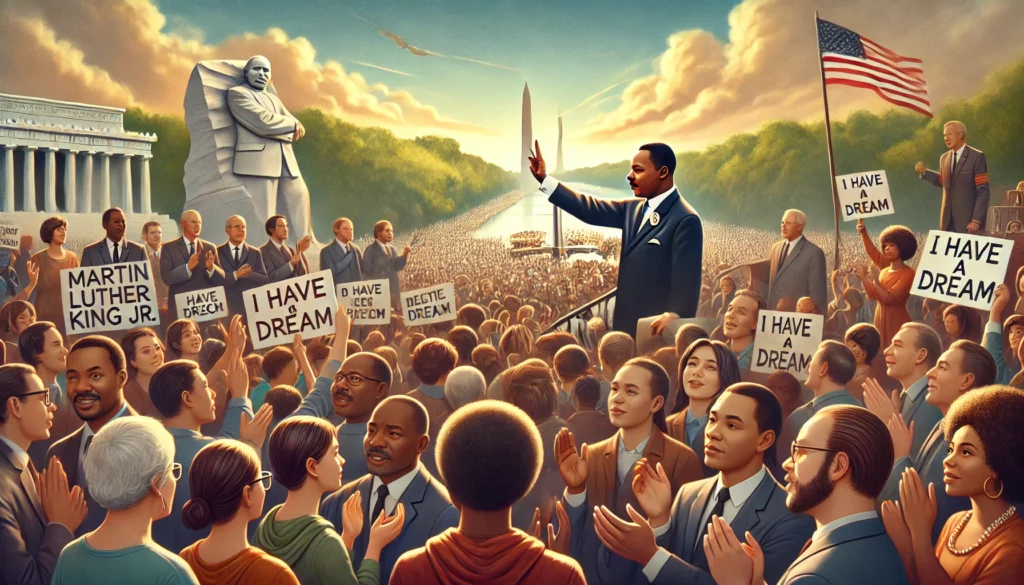Dr. Martin Luther King Jr.’s “I Have a Dream” speech stands as one of the most powerful and transformative addresses in modern history. Delivered on August 28, 1963, during the historic March on Washington for Jobs and Freedom, the speech crystallized the aspirations of the Civil Rights Movement and set a moral framework for the ongoing fight for equality and justice.
King’s message was not just a call to action—it was a vision. By invoking the founding principles of the United Statesand intertwining them with a profound moral and spiritual appeal, he bridged the ideals of democracy with the urgent demand for civil rights. His words—“I have a dream that one day every valley shall be exalted, every hill and mountain shall be made low”—echoed a biblical promise of justice, resonating with audiences far beyond that moment in time.
The speech’s universal themes of hope, unity, and equality have made it a timeless piece of rhetoric. It remains a cornerstone of discussions around racial injustice, social reform, and the enduring fight against systemic oppression. King’s dream, encapsulated in the speech, continues to inspire movements worldwide, serving as a reminder that collective action can bring about meaningful change.
In today’s world, as inequalities persist in various forms, King’s words challenge us to reflect: Are we living up to the dream he so eloquently articulated? His legacy compels us not only to commemorate his achievements but to actively pursue the world he envisioned—one defined by equality, opportunity, and justice for all.

